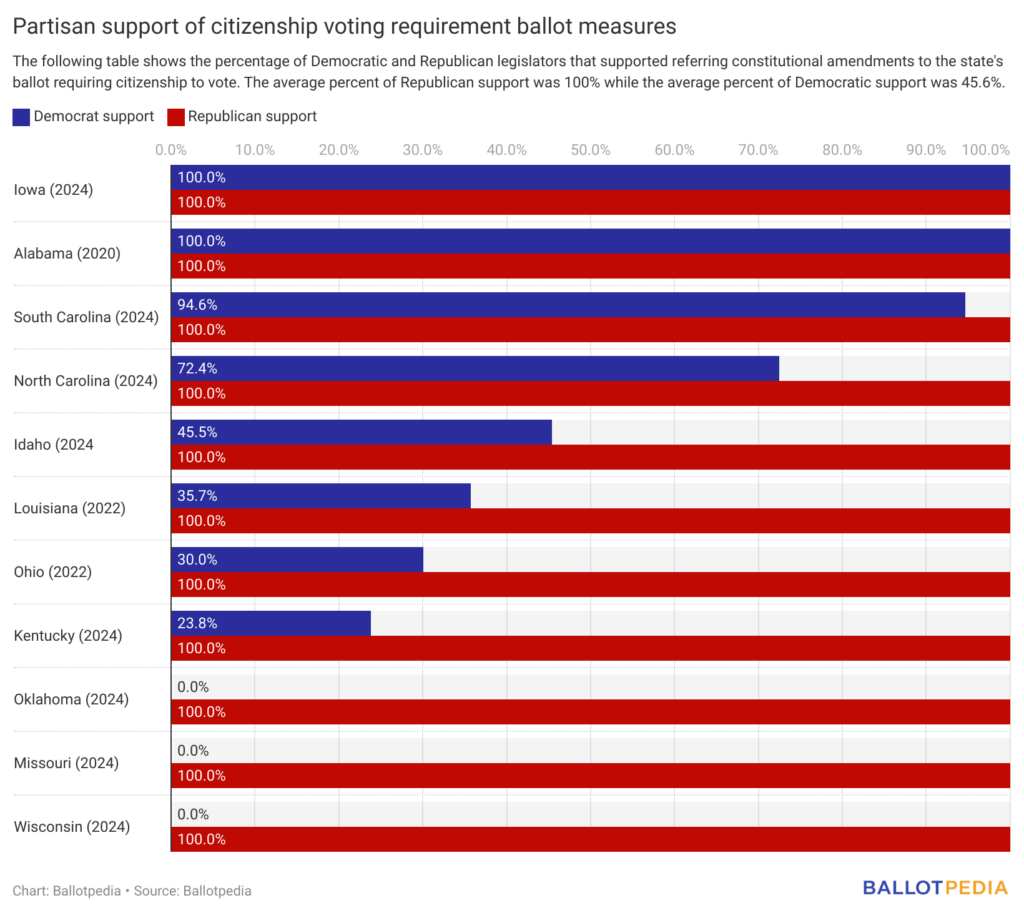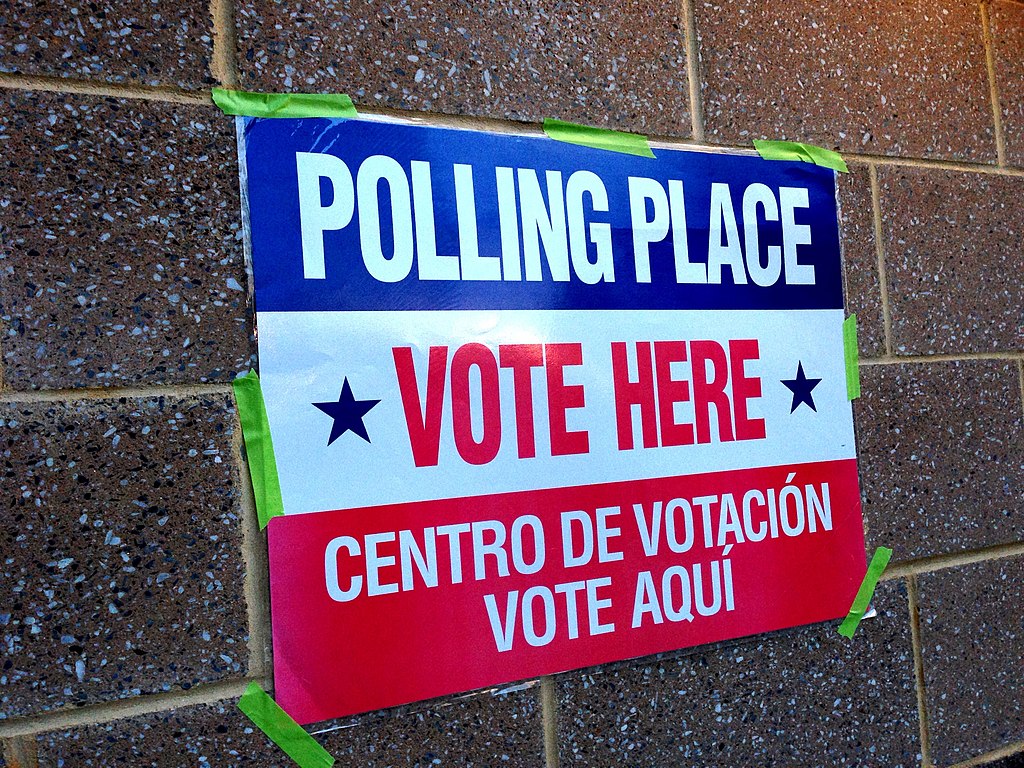Since 2018, ballot measures to amend state constitutions to prohibit noncitizens from voting have appeared in six states. In Nov. 2024, voters in eight more states will decide on ballot measures to prohibit non-citizen voting: North Carolina, Idaho, Iowa, Kentucky, Missouri, Oklahoma, South Carolina, and Wisconsin. The ballot measures are designed to amend the states’ constitutions to provide that only a citizen rather than every citizen may vote in a state’s elections.
Of the 14 ballot measures, three were citizen-initiated and 11 were legislative referrals. In 2024, Republican-controlled state legislatures referred the eight ballot measures. For the 11 legislative referrals, 100% of Republicans, minus non-voting members, supported these constitutional amendments. Support from Democrats ranged from 0% to 100%, depending on the state. The average support from Democrats was 45.6%.
In Oklahoma, Missouri, and Wisconsin, no legislative Democrats supported the constitutional amendments.
The states with the lowest non-zero percentage of Democratic support were Kentucky, where 23.8% of Democratic legislators were in favor; Ohio (30%); Louisiana (35.7%); North Carolina (72.4%); and South Carolina (94.6%).
In Alabama (2020) and Iowa (2024), legislators passed the referrals with unanimous support from both parties. The Iowa amendment includes an additional provision that would allow 17-year-olds who will be 18 by the general election to vote in primary elections.

In 1996, the U.S. Congress passed a law prohibiting noncitizens from voting in federal elections, such as U.S. House, U.S. Senate, and presidential elections. Federal law did not address state or local elections.
All state constitutions mention U.S. citizenship when discussing who can vote in that state’s elections. In 43 states, constitutional language discussing citizenship says who can vote (e.g. every citizen or all citizens), but does not state that noncitizens cannot vote. In seven states (Alabama, Arizona, Colorado, Florida, Louisiana, North Dakota, and Ohio), the states’ constitutions provide that citizens, but not noncitizens, have the right to vote.
North Dakota was the first state to make the change in its constitution when in 2018, an amendment was approved with 65.93% of voters in favor. In 2020, three states—Colorado, Alabama, and Florida—approved citizenship requirements for voting measures. In 2022, Ohio and Louisiana also made the constitutional change. All six measures were approved with at least 62.9% of the vote.
As of 2024, the District of Columbia and municipalities in California, Maryland, and Vermont allowed noncitizens to vote in some or all local elections.
Additional reading:


